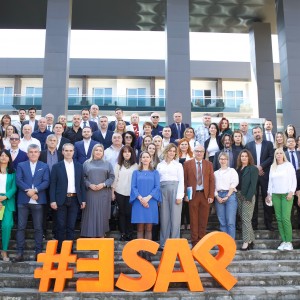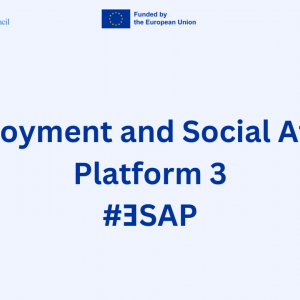Commission presents Action Plan to boost the social economy and create jobs

The European Commission has today presented an Action Plan to help the European social economy thrive, tapping into its economic and job-creation potential, as well as its contribution to a fair and inclusive recovery, and the green and digital transitions.
Social economy organisations are entities which put social and environmental purposes first, reinvesting most of their profit back into the organisation. There are 2.8 million social economy entities in Europe that employ 13.6 million people and which offer solutions to key challenges in our societies. They span a diverse range of sectors and forms, from care services to recycling; from cooperatives to social enterprises.
Enhanced support to the social economy not only creates jobs, but also allows organisations to increase their social impact across the EU. Today’s Social Economy Action Plan smooths the way for social economy organisations to prosper and grow.
The Commission proposes to act in three areas:
1. Creating the right conditions for the social economy to thrive
Policy and legal frameworks are key in creating the right environment for the social economy to thrive. This includes taxation, public procurement and State aid frameworks that have to be adapted to the needs of the social economy.
To address these issues, the Commission will propose a Council Recommendation on developing the social economy framework conditions in 2023. It will also publish guidance for Member States on taxation frameworks for social economy organisations and facilitate easier access to guidance on State aid. The Action Plan also aims to improve good practice on socially responsible public procurement and promote the targeting of the social economy outside EU borders.
2. Opening opportunities for social economy organisations to start up and scale up
Social economy entities should benefit from business development support to start up and develop, as well as to reskill and upskill their workers. For 2021-2027, the Commission is aiming to increase its support beyond the estimated €2.5 billion allocated to the social economy previously (2014-2020).
Among other actions, the Commission will launch a new EU Social Economy Gateway in 2023 to ensure social economy actors can find all the information they need in one place on EU funding, policies, training and initiatives. It will also launch new financial products in 2022 under the InvestEU programme and improve access to funding. In 2022, the Commission will also set up a European Competence Centre for Social Innovation.
3. Making sure the social economy and its potential are recognised
The Action Plan aims to make the social economy more visible and improve the recognition of its work and potential. The Commission will carry out communication activities emphasising the role and specificities of the social economy.
Furthermore, the Commission will launch a study to collect qualitative and quantitative data to better understand the social economy across the EU. It will also organise training courses for public officials on various topics with relevance for the social economy, promote the social economy at regional and local levels by fostering cross-border exchanges, and much more.
With today’s Action Plan, the Commission is also launching a “transition pathway” to help the green and digital transitions of the social economy in dialogue with public authorities and interested parties.The Commission seeks public views on the transition pathway through an EU survey open until 28 February 2022.
Read the original news HERE
News source: ec.europa.eu/social


